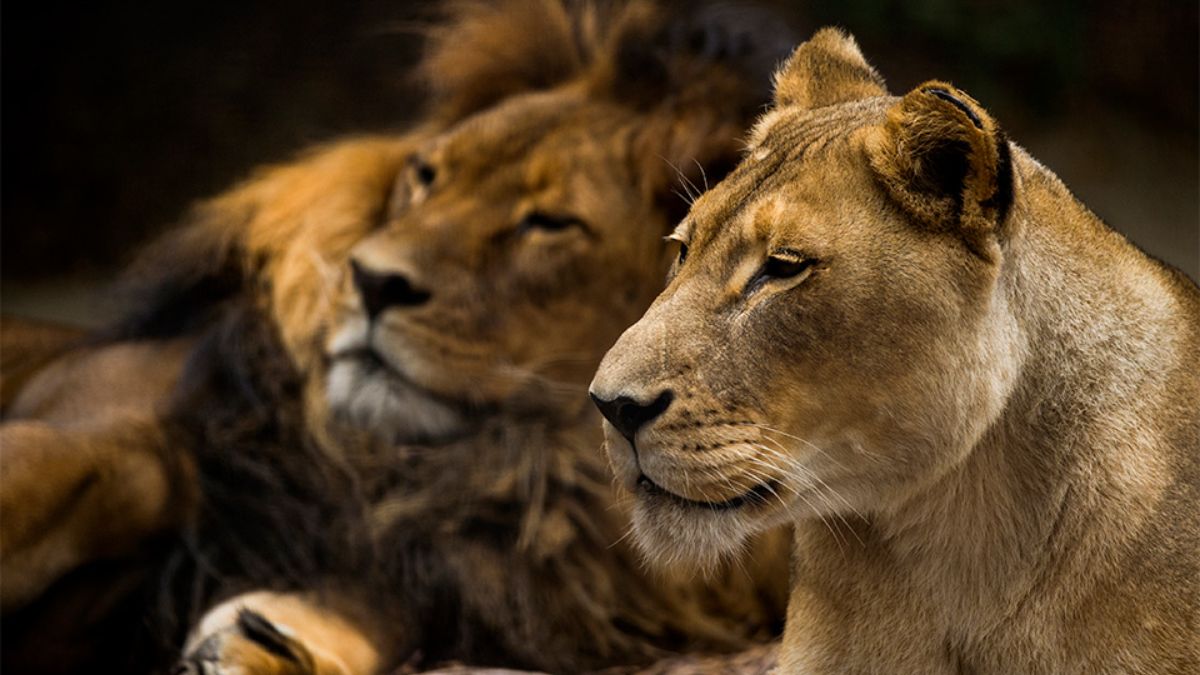A decision by Adelaide Zoo to euthanise a pair of African lions, after one of them suffered a medical episode, has unleashed a storm of public outrage.
In a statement on Thursday, the Australia-based zoo shared, “It is with an extremely heavy heart that Adelaide Zoo announces the passing of African Lion pair female Amani and male Mujambi. Both big cats are now at rest."
The decision, intended as a compassionate gesture, has instead ignited heated debate, with critics calling it an “unnecessary act of cruelty."
Here’s a closer look at the controversy.
The ‘remarkable’ bond
Mujambi, a 19-year-old African lion was brought to the Adelaide Zoo from New South Wales in 2007, whereas his partner Amani, 23, from Auckland in 2002.
Amani and Mujambi had been together for 16 years and were “very closely bonded”. The zoo described Mujambi as a handsome lion with a beautiful mane despite his old age.
“Mujambi, or Muj as he was known by his keepers, could regularly be heard chuffing at helicopters and planes overhead and liked to start the morning with a chorus. His chuffs would often wake up the zoo. We will really miss that sound, " said zoo curator Deb Barry.
Dr Phil Ainsley, Adelaide Zoo’s director in a The Guardian report said the pair’s relationship was “quite remarkable”.
“She (Amani) swiped at him, growled, and bossed him around, but she also wanted to be no further away from him than his shadow,” said Barry.
The African lions had lived beyond their average life expectancy in the wild of around 15 years, the zoo said.
“Under human care in a zoo or safari park setting, lions can live into their 20s. At 23 and 19 both lions were in the latter stages of their lives,” it said.
Mujambi suffered a medical episode over the weekend, prompting the zoo’s veterinary team to intervene. When efforts to improve his condition failed, the zoo management decided to euthanise the animal to spare it further suffering.
Shortly after Mujambi’s death, Amani, who was the oldest lioness in the country, was put to sleep.
‘Was there really no other option?’
Social media has been flooded with grief and confusion over the zoo’s decision to euthanise both lions. Users are questioning whether ending Amani’s life was truly necessary.
One user commented, “So terribly sad that she was put to sleep also — I just don’t understand that this was the only option — seems so very very extreme.”
Another user expressed frustration, “Why couldn’t you have got another mate for her? Just because she was the oldest in captivity doesn’t mean you had to kill her? Also a healthy animal being killed is cruelty. I will not be supporting the zoo ever again.”
While others asked about the decision’s timing. “How long after the medical episode did you euthanise him? How do you know he wouldn’t have come around naturally?”
Another questioned why Amani was not relocated to a different zoo saying, “Bringing down another lion or taking her up to Monarto [Safari Park] so she can be with others. To take her life when she was healthy and happy. Sorry don’t find that fair."
Amid the backlash, one user shared a heartfelt tribute along with a photo of Mujambi, saying, “Oh that is such sad news. Mujambi and Amani were such beautiful animals and adored by many.”
Decision taken ‘very carefully’
In response to the backlash on Facebook, the zoo clarified that its decision regarding Amani was “not taken lightly.”
Zoo director Ainsley explained that management thoroughly explored all possible options, including relocating Amani to another zoo with her species. However, this was deemed “too risky” and “stressful provoking” for the aging lioness.
“Based on … the fact she is 23 years of age, the decision was that for her welfare and for her own wellbeing that would not be in [her] best interest,” he was quoted by The Independent.
Ainsley also highlighted the differences in social structures between tigers and African lions: “Tigers, we know, potentially can live in isolation – that’s not how it works for African lions. Normally you’ll either get a pride or, as they get older, a couple living together.”
Elaine Bensted, the chief executive of Zoos South Australia, shared with The Guardian that both lions had been under medical supervision for an extended period. She emphasized that they “didn’t want Amani’s last, what might have been months, to be pining for the male that she’d been partnered with for so long.”
Ultimately, the zoo concluded that the “negative impacts” on Amani from being without her partner outweighed any benefits of keeping the lioness alive.
In honour of Amani and Mujambi, the zoo has launched a website titled “Remembering African Lions Mujambi and Amani,” inviting the public to share their thoughts and messages of support for the keepers who cared for them.
With input from agencies
)